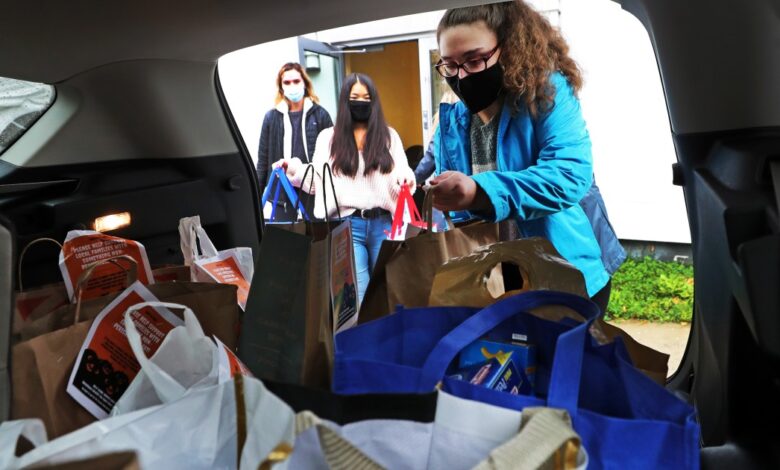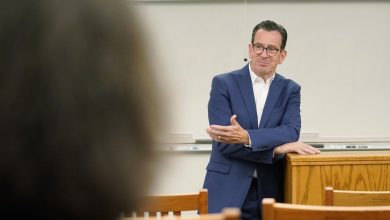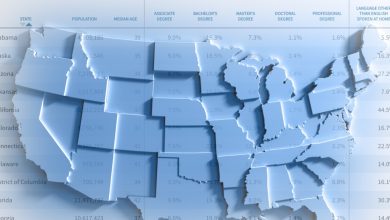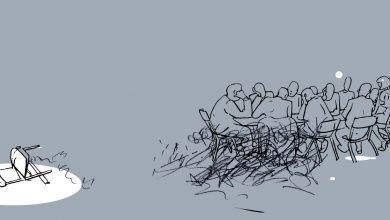Who’s Had Covid-19? A National Survey of Students Reveals Disparities

[ad_1]
Nearly 7 percent of college students who participated in a national survey said they had been “sick with Covid” during or since spring 2020. Self-reported infection rates were higher among racial and ethnic minorities than among white students. And those who self-reported contracting the virus were more likely than others to have experienced food insecurity, anxiety, and depression.
Those findings appear in a new research brief from the Hope Center for College, Community, and Justice at Temple University. The study, apparently the first to examine how being infected with Covid-19 affected college students, was based on a fall 2020 survey of more than 100,000 students at 202 institutions in 42 states.
The data fill a gap in higher education’s understanding of Covid-19’s impact. Most colleges don’t know who among their students have been infected, the report says, “or how infections affect students’ health and well-being.” Subgroups of students who, in general, are likely to struggle in college reported higher rates of infection than some of their peers: working students, students with children, and those receiving federal Pell Grants.
College leaders must do more to identify and support students who’ve had the virus, which even months later can hinder their performance inside and outside the classroom, said Sara Goldrick-Rab, president and founder of the Hope Center and a co-author of the report: “Institutions are really worried about their enrollment. I hope that they own the fact that they have a role to play in whether these students stay or go.”
In an interview with The Chronicle, Goldrick-Rab, a professor of sociology and medicine at Temple, discussed the survey findings — and the implications for colleges preparing for an uncertain fall semester.
The pandemic has disrupted many students’ lives, but this research concerns the effects of the virus itself on their health and well-being. That distinction is important.
We know the pandemic is affecting students in many different ways. It has created more social isolation, pushed them into a different kind of learning situation, and changed how, where, and when they can work. In theory, if everything reopens this fall — let’s just set aside the Delta variant for a minute — the effects of the pandemic could wane.
But the virus is another thing entirely, because the evidence on how it’s affecting people includes long-term implications. This idea of long Covid is real. That’s where the motivation for this paper comes from.
Let’s say I’m a college leader eating my Cheerios while reading this. What’s the most important thing I should take away from these survey findings?
We need to pay attention to who’s had this virus. The attention right now is about not having more people get it, and that’s good. But I don’t think very many colleges are saying that they’re going to ask students to disclose whether they’ve had the virus. You can’t require it, but you’re certainly allowed to ask.
They should ask because they need to pay special attention to those students for two reasons. One is that the inequalities that colleges are already supposedly concerned about are playing out in terms of who’s had this virus. The students who are most at risk here are African American, Latinx, Indigenous, Pell recipients, people with kids — students who were already more likely to struggle in college. The effects of the pandemic itself on them have clearly been more acute.
Two, and really critically, it does look like this virus has done some bad things to people that would play out in the classroom.
In short, the virus could have long-term implications for student success.
If I’m a president, I should be concerned with how students are going to do academically. I’m probably mostly focused on the fact my classes are in person as opposed to online. But what about the fact that you may have students who have had this virus, whether or not they know it, that could be depressing them or causing them difficulty with mental health that could lead them to have lower grades?
If we don’t let faculty know that when a student is not doing well in their class, it really may come with a new reason now, then we haven’t set faculty up to succeed. Faculty need to know that sizable numbers of students may very well have had Covid and are exhibiting the physical implications. It’s irresponsible not to be talking about this very, very new and significant threat to students’ health.
I can imagine many colleges hesitating to ask students if they’ve had the virus, for fear of freaking them out. How can they inquire in a nonthreatening way?
The fear that a student will feel more marginalized or feel afraid to disclose is the same kind of thing we faced when we first started asking about food insecurity. And we learned that students felt cared for. They wrote in the margins, “Thank you for asking.”
Once you have the information, there’s the question of what you do with it. It’s not necessarily, “I want you to go tell your professor.” I would set up an outreach email and phone number for somebody — ideally, a health professional — to field those inquiries. “If you believe you have been infected in the past, or that you are infected now, please reach out. Help is available.” Give them a nonthreatening option.
And I would absolutely put something on the syllabus that says something like, “Some of you may have had Covid. If you feel that you are struggling, reach out here.”
The survey found that student-athletes were two percentage points more likely than nonathletes to have had a Covid-19 infection, though, as the report notes, this difference might reflect higher rates of testing among athletes. What should colleges know here?
Student-athletes deserve particular attention. You can tell me they weren’t in the hospital, but you can’t tell me, based on medical literature, that they may not have downstream implications. It’s like saying the only people that we should worry about who have student debt are those who default.
As you mentioned, many students who could benefit from such outreach might already be struggling with other challenges, especially lower-income students. What might their mind-set be like right now?
Let’s says they come from a household that really struggles to pay the bills. Now, you add on the fact that they’re more likely to have had this virus. Just think about the mental space of a student that comes from a family with no money and whose parents didn’t go to college. In a good year, they’re already on a daily basis struggling to navigate college.
Now imagine that they have the Covid fog. The Covid fog, the brain fog, from what I understand of it, it’s like you know where you’re trying to go, but you just can’t really see, and you can’t think clearly.
We have colleges right now that are trying to get emergency aid down to students, and we’re hearing from colleges that those students aren’t responding. Even when we offer them supports, they’re going to be less likely to be able to seize them.
What can colleges do about that?
First, if there’s a support that you think could be helpful to a student, make it opt-out and not opt-in. We don’t need to be asking students, for example, if they want these emergency grants. Of course they want the grants.
Second, try repeated messages. Stop worrying so much that you’ve told them already. Tell them once a week if it’s really important. Use multiple modes. Don’t just put it in email. Put it in the learning-management system. Text them.
Also, this is the time to start simplifying the communications. I’m seeing back-to-school messages going out to students with paragraphs in an email. Too many words, too much technical language. It should just be one or two points in a single message. You can always link people to another document if they want more details.
Stepping back into the classroom, how can instructors best adapt in this challenging moment?
This is a really important time to revisit how we do grading. I understand that we’re not going to be able to just completely drop grades right now. But just envision yourself coming back after this horrible experience, you’re foggy and a bit depressed, and then you get a paper back, and it’s a D. The D says, “You don’t belong here.”
What if instead you came back with comments that said, “Look, I don’t think you really understood this assignment, you didn’t really do the work, and I invite you to office hours to work on it”?
Ask students to write a couple of self-reflections during the term. How are they doing? What are they learning? Where are they stumbling? Ask them, “If you had to give yourself a grade right now, where are you at?”
So you’re not urging faculty members to be less demanding. Just more … flexible?
I’m asking them to be what I call warm demanders. I have very high expectations in my class, I don’t give anything away, but I genuinely want the learning to reach my students. What’s the point of delivering it in a way that it doesn’t reach them? I don’t know if that’s really more or less flexible per se, it’s just literally tailored to the circumstances.
What else do you plan to do to help students during this uncertain fall semester?
I do a welcome survey, and many others do this. I use open-ended questions that ask them, “What are your biggest challenges right now” in the broadest possible sense? A student can say, “Well, I’m working three jobs,” or “I’ve got two kids.” And I also ask, “What can I do to support you this semester?”
Sometimes, two or three weeks into the term, the person is not turning their work. When I write to them, I say: “On your survey you said that you’ve got these kids. Life is complicated. I’m not writing to penalize you, I’m writing to tell you that I’m here.” Having a little bit of information about them immediately helps them feel like they can respond to you.
Also, saying things out loud is important. “Look, folks, this has been a really hard time. Some of you may have had this virus, some of you may get this virus. I want you to know that I don’t think this makes you a bad student.”
They’re not cookie-cutter widget-things; they’re people. We’re better teachers for them when we literally just let them be humans.
This interview has been edited for length and clarity.
[ad_2]
Source link






